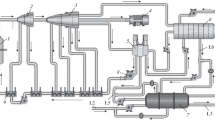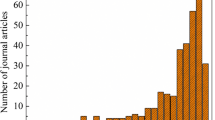Abstract
The integration of electrodialysis with bipolar membranes (EDBM) with seawater reverse osmosis (SWRO) process influences the two main environmental burdens of SWRO desalination process: climate change, accounted here as carbon footprint (CF) and associated to the high-energy consumption, and the environmental alteration of the vicinities of the facility, due to brine disposal. EDBM powered by photovoltaic (PV) solar energy is able to meet the above-mentioned challenges that arise in SWRO desalination. In addition, HCl and NaOH, both employed in the desalination industry, can be produced from the brines. Hence, environmental benefits regarding the potential self-supply can be achieved. The environmental sustainability assessment by means of life cycle assessment (LCA) of a SWRO and EDBM has been carried out considering four different scenarios. The percentage of treated brines and the influence of the grid mix used for electric power supply has been taken into account. The three different electric power supplies were 100.0% renewable energy (PV solar energy), 36.0% renewable energy (average Spanish grid mix), and 1.9% (average Israeli grid mix). The results showed that the CF per unit of volume produced freshwater for SWRO and the self-supply reagent production scenario for the three Spanish grid mix, the Israeli grid mix, and the PV solar energy were 6.96 kg CO2-eq·m−3, 12.57 kg CO2-eq·m−3, and 2.17 kg CO2-eq·m−3, respectively.






Similar content being viewed by others
Abbreviations
- BD :
-
Brine discharge
- CC :
-
Climate change
- CF :
-
Carbon footprint
- FU :
-
Functional unit
- GHG :
-
Greenhouse gas
- LCA :
-
Life cycle assessment
- PV :
-
Photovoltaic
- SWRO :
-
Seawater reverse osmosis
References
Aleisa E, Al-Shayji K (2018) Ecological–economic modeling to optimize a desalination policy: case study of an arid rentier state. Desalination 430:64–73. https://doi.org/10.1016/j.desal.2017.12.049
Al-Sarkal T, Arafat HA (2013) Ultrafiltration versus sedimentation-based pretreatment in Fujairah-1 RO plant: environmental impact study. Desalination 317:55–66. https://doi.org/10.1016/j.desal.2013.02.019
Amy G, Ghaffour N, Li ZY, Francis L, Linares RV, Missimer T, Lattemann S (2017) Membrane-based seawater desalination: present and future prospects. Desalination 401:16–21. https://doi.org/10.1016/j.desa1.2016.10.002
Belkin N, Rahav E, Elifantz H, Kress N, Berman-Frank I (2015) Enhanced salinities, as a proxy of seawater desalination discharges, impact coastal microbial communities of the eastern Mediterranean Sea. Environ Microbiol 17:4105–4120. https://doi.org/10.1111/1462-2920.12979
Belkin N, Rahav E, Elifantz H, Kress N, Berman-Frank I (2017) The effect of coagulants and antiscalants discharged with seawater desalination brines on coastal microbial communities: a laboratory and in situ study from the southeastern Mediterranean. Water Res 110:321–331. https://doi.org/10.1016/j.watres.2016.12.013
Biswas WK, Yek P (2016) Improving the carbon footprint of water treatment with renewable energy: a Western Australian case study. Renewables Wind Water Sol 3:14. https://doi.org/10.1186/s40807-016-0036-2
Cherchi C, Badruzzaman M, Becker L, Jacangelo JG (2017) Natural gas and grid electricity for seawater desalination: an economic and environmental life-cycle comparison. Desalination 414:89–97. https://doi.org/10.1016/j.desal.2017.03.028
Dashtpour R, Al-Zubaidy SN (2012) Energy efficient reverse osmosis desalination process. Int J Environ Sci Dev 3(4):339–345. https://doi.org/10.7763/IJESD.2012.V3.243
de la Ossa Carretero JA, Del-Pilar-Ruso Y, Loya-Fernández A et al (2016) Bioindicators as metrics for environmental monitoring of desalination plant discharges. Mar Pollut Bull 103:313–318. https://doi.org/10.1016/j.marpolbul.2015.12.023
Del-Pilar-Ruso Y, De-la-Ossa-Carretero JA, Giménez-Casalduero F, Sánchez-Lizaso JL (2008) Effects of a brine discharge over soft bottom Polychaeta assemblage. Environ Pollut 156:240–250. https://doi.org/10.1016/j.envpol.2007.12.041
Drioli E, Ali A, Macedonio F (2017) Membrane operations for process intensification in desalination. Appl Sci 7:100. https://doi.org/10.3390/app7010100
Einav R, Harussi K, Perry D (2003) The footprint of the desalination processes on the environment. Desalination 152:141–154. https://doi.org/10.1016/S0011-9164(02)01057-3
Fernandez-Gonzalez C, Dominguez-Ramos A, Ibañez R, Irabien A (2015) Sustainability assessment of electrodialysis powered by photovoltaic solar energy for freshwater production. Renew Sust Energ Rev 47:604–615. https://doi.org/10.1016/j.rser.2015.03.018
Fernandez-Gonzalez C, Dominguez-Ramos A, Ibañez R, Irabien A (2016) Electrodialysis with bipolar membranes for valorization of brines. Sep Purif Rev 45:275–287. https://doi.org/10.1080/15422119.2015.1128951
Fernández-Torquemada Y, Sánchez-Lizaso JL (2005) Effects of salinity on leaf growth and survival of the Mediterranean seagrass Posidonia oceanica (L.) Delile. J Exp Mar Bio Ecol 320:57–63. https://doi.org/10.1016/j.jembe.2004.12.019
Foro de la Industria Nuclear Española (2017) Energía 2017. https://www.foronuclear.org/es/
Gacia E, Invers O, Manzanera M, Ballesteros E, Romero J (2007) Impact of the brine from a desalination plant on a shallow seagrass (Posidonia oceanica) meadow. Estuar Coast Shelf Sci 72:579–590. https://doi.org/10.1016/j.ecss.2006.11.021
García-Rubio MA, Guardiola J (2012) Desalination in Spain: a growing alternative for water supply. Int J Water Resour Dev 28:171–186. https://doi.org/10.1080/07900627.2012.642245
Herrero-Gonzalez M, Diaz-Guridi P, Dominguez-Ramos A et al (2018a) Photovoltaic solar electrodialysis with bipolar membranes. Desalination 433:155–163. https://doi.org/10.1016/j.desal.2018.01.015
Herrero-Gonzalez M, Wolfson A, Dominguez-Ramos A, Ibañez R, Irabien A (2018b) Monetizing environmental footprints: index development and application to a solar-powered chemicals self-supplied desalination plant. Sustain Chem Eng 6:14533–14541. https://doi.org/10.1021/acssuschemeng.8b03161
IDA (2015) Water Desalination Report. https://idadesal.org/
IEA (2016a) Key World Energy Statistics 2016. http://www.iea.org/
IEA (2016b) International Energy Agency. http://www.iea.org/. Accessed 13 Jul 2017
Jiang C, Wang Y, Wang Q, Feng H, Xu T (2014a) Production of lithium hydroxide from lake brines through electro-electrodialysis with bipolar membranes (EEDBM). Ind Eng Chem Res 53:6103–6112. https://doi.org/10.1021/ie404334s
Jiang C, Wang Y, Zhang Z, Xu T (2014b) Electrodialysis of concentrated brine from RO plant to produce coarse salt and freshwater. J Memb Sci 450:323–330. https://doi.org/10.1016/j.memsci.2013.09.020
Jones E, Qadir M, Van Vliet MTH et al (2019) The state of desalination and brine production : a global outlook. Sci Total Environ 657:1343–1356. https://doi.org/10.1016/j.scitotenv.2018.12.076
Kalogirou SA (2001) Effect of fuel cost on the price of desalination water: a case for renewables. Desalination 138:137–144. https://doi.org/10.1016/S0011-9164(01)00255-7
Koter S, Warszawski A (2006) A new model for characterization of bipolar membrane electrodialysis of brine. Desalination 198:111–123. https://doi.org/10.1016/j.desal.2006.09.016
Lyons E, Zhang P, Benn T, Sharif F, Li K, Crittenden J, Costanza M, Chen YS (2009) Life cycle assessment of three water supply systems: importation, reclamation and desalination. Water Sci Technol Water Supply 9:439–448. https://doi.org/10.2166/ws.2009.534
Masdar (2015) Global CO2 emissions of water desalination plants. http://www.clca.columbia.edu/Global-Water.pdf
Meneses M, Pasqualino JC, Céspedes-Sánchez R, Castells F (2010) Alternatives for reducing the environmental impact of the main residue from a desalination plant. J Ind Ecol 14:512–527. https://doi.org/10.1111/j.1530-9290.2010.00225.x
Ortiz-Albo P, Ibañez R, Urtiaga A, Ortiz I (2019) Phenomenological prediction of desalination brines nanofiltration through the indirect determination of zeta potential. Sep Purif Technol 210:746–753. https://doi.org/10.1016/j.seppur.2018.08.066
Palomar P, Losada IJ (2011) Chapter: the impacts of desalination on the marine. In: Nemeth AD (ed) The marine environment: ecology, management and conservation. Nova Science, New York
Pérez-González A, Urtiaga AM, Ibáñez R, Ortiz I (2012) State of the art and review on the treatment technologies of water reverse osmosis concentrates. Water Res 46:267–283. https://doi.org/10.1016/j.watres.2011.10.046
PVGIS (2017) JRC’s Directorate C: Energy, Transport and Climate - PVGIS - European Commission. http://re.jrc.ec.europa.eu/pvgis/. Accessed 21 Apr 2017
Ras C, von Blottnitz H (2012) A comparative life cycle assessment of process water treatment technologies at the Secunda industrial complex, South Africa. Water SA 38:549–554. https://doi.org/10.4314/wsa.v38i4.10
Reig M, Valderrama C, Gibert O, Cortina JL (2016) Selectrodialysis and bipolar membrane electrodialysis combination for industrial process brines treatment: monovalent-divalent ions separation and acid and base production. Desalination 399:88–95. https://doi.org/10.1016/j.desal.2016.08.010
Roberts DA, Johnston EL, Knott NA (2010) Impacts of desalination plant discharges on the marine environment: a critical review of published studies. Water Res 44:5117–5128. https://doi.org/10.1016/j.watres.2010.04.036
Röthig T, Ochsenkühn MA, Roik A, van der Merwe R, Voolstra CR (2016) Long-term salinity tolerance is accompanied by major restructuring of the coral bacterial microbiome. Mol Ecol 25:1308–1323. https://doi.org/10.1111/mec.13567
Sánchez-Lizaso JL, Romero J, Ruiz J, Gacia E, Buceta JL, Invers O, Fernández Torquemada Y, Mas J, Ruiz-Mateo A, Manzanera M (2008) Salinity tolerance of the Mediterranean seagrass Posidonia oceanica: recommendations to minimize the impact of brine discharges from desalination plants. Desalination 221:602–607. https://doi.org/10.1016/j.desal.2007.01.119
Schallenberg-Rodríguez J, Veza JM, Blanco-Marigorta A (2014) Energy efficiency and desalination in the Canary Islands. Renew Sust Energ Rev 40:741–748. https://doi.org/10.1016/j.rser.2014.07.213
Schlömer S, Bruckner T, Fulton L, et al (2014) Annex III: technology-specific cost and performance parameters. In: Edenhofer O, Pichs-Madruga R, Sokona Y, et al. (eds) Climate change 2014: mitigation of climate change. Contribution of working group III to the fifth assessment report of the intergovernmental panel on climate change. Cambridge University Press, Cambridge, United Kingdom and New York, NY, USA,
Shahabi MP, McHugh A, Anda M, Ho G (2014) Environmental life cycle assessment of seawater reverse osmosis desalination plant powered by renewable energy. Renew Energy 67:53–58. https://doi.org/10.1016/j.renene.2013.11.050
Shahzad MW, Burhan M, Ang L, Ng KC (2017) Energy-water-environment nexus underpinning future desalination sustainability. Desalination 413:52–64. https://doi.org/10.1016/j.desal.2017.03.009
Swiss Centre for Life Cycle Inventories (2016) The ecoinvent database Version 3 [WWW Document]. http://www.ecoinvent.org
Tarnacki KM, Melin T, Jansen AE, Van Medevoort J (2011) Comparison of environmental impact and energy efficiency of desalination processes by LCA. Water Sci Technol Water Supply 11:246–251. https://doi.org/10.2166/ws.2011.052
Tarnacki K, Meneses M, Melin T, van Medevoort J, Jansen A (2012) Environmental assessment of desalination processes: reverse osmosis and Memstill®. Desalination 296:69–80. https://doi.org/10.1016/j.desal.2012.04.009
Tate J (2008) Industrial reverse osmosis system design. Water Cond Purif Mag 7:3. http://www.wcponline.com/
Thinkstep (2017) Gabi 6 software and database on life cycle assessment. Leinfelden-Echterdingen, Germany
Uche J, Martínez-Gracia A, Círez F, Carmona U (2015) Environmental impact of water supply and water use in a Mediterranean water stressed region. J Clean Prod 88:196–204. https://doi.org/10.1016/j.jclepro.2014.04.076
Varun, Bhat IK, Prakash R (2009) LCA of renewable energy for electricity generation systems—a review. Renew Sust Energ Rev 13:1067–1073. https://doi.org/10.1016/j.rser.2008.08.004
Vince F, Aoustin E, Bréant P, Marechal F (2008) LCA tool for the environmental evaluation of potable water production. Desalination 220:37–56. https://doi.org/10.1016/j.desal.2007.01.021
Wang M, Wang KK, Jian YX, Ren QC (2014) The reclamation of brine generated from desalination process by bipolar membrane electrodialysis. J Memb Sci 452:54–61. https://doi.org/10.1016/j.memsci.2013.10.029
Yang Y, Gao X, Fan A, Fu L, Gao C (2014) An innovative beneficial reuse of seawater concentrate using bipolar membrane electrodialysis. J Memb Sci 449:119–126. https://doi.org/10.1016/j.memsci.2013.07.066
Yoon SJ, Park GS (2011) Ecotoxicological effects of brine discharge on marine community by seawater desalination. Desalin Water Treat 33:240–247. https://doi.org/10.5004/dwt.2011.2644
Zhou J, Chang VWC, Fane AG (2013) An improved life cycle impact assessment (LCIA) approach for assessing aquatic eco-toxic impact of brine disposal from seawater desalination plants. Desalination 308:233–241. https://doi.org/10.1016/j.desal.2012.07.039
Zhou J, Chang VWC, Fane AG (2014) Life cycle assessment for desalination: a review on methodology feasibility and reliability. Water Res 61:210–223. https://doi.org/10.1016/j.watres.2014.05.017
Funding
Financial support was from MICINN under project CTM2014-57833-R. Marta Herrero-Gonzalez thanks the MICINN for FPI grant BES-2015-07350. Marta Herrero and Noy Admon thank the Erasmus+ program for the Student Mobility KA107 grant.
Author information
Authors and Affiliations
Corresponding author
Additional information
Responsible editor: Philippe Loubet
Publisher’s note
Springer Nature remains neutral with regard to jurisdictional claims in published maps and institutional affiliations.
Rights and permissions
About this article
Cite this article
Herrero-Gonzalez, M., Admon, N., Dominguez-Ramos, A. et al. Environmental sustainability assessment of seawater reverse osmosis brine valorization by means of electrodialysis with bipolar membranes. Environ Sci Pollut Res 27, 1256–1266 (2020). https://doi.org/10.1007/s11356-019-04788-w
Received:
Accepted:
Published:
Issue Date:
DOI: https://doi.org/10.1007/s11356-019-04788-w




